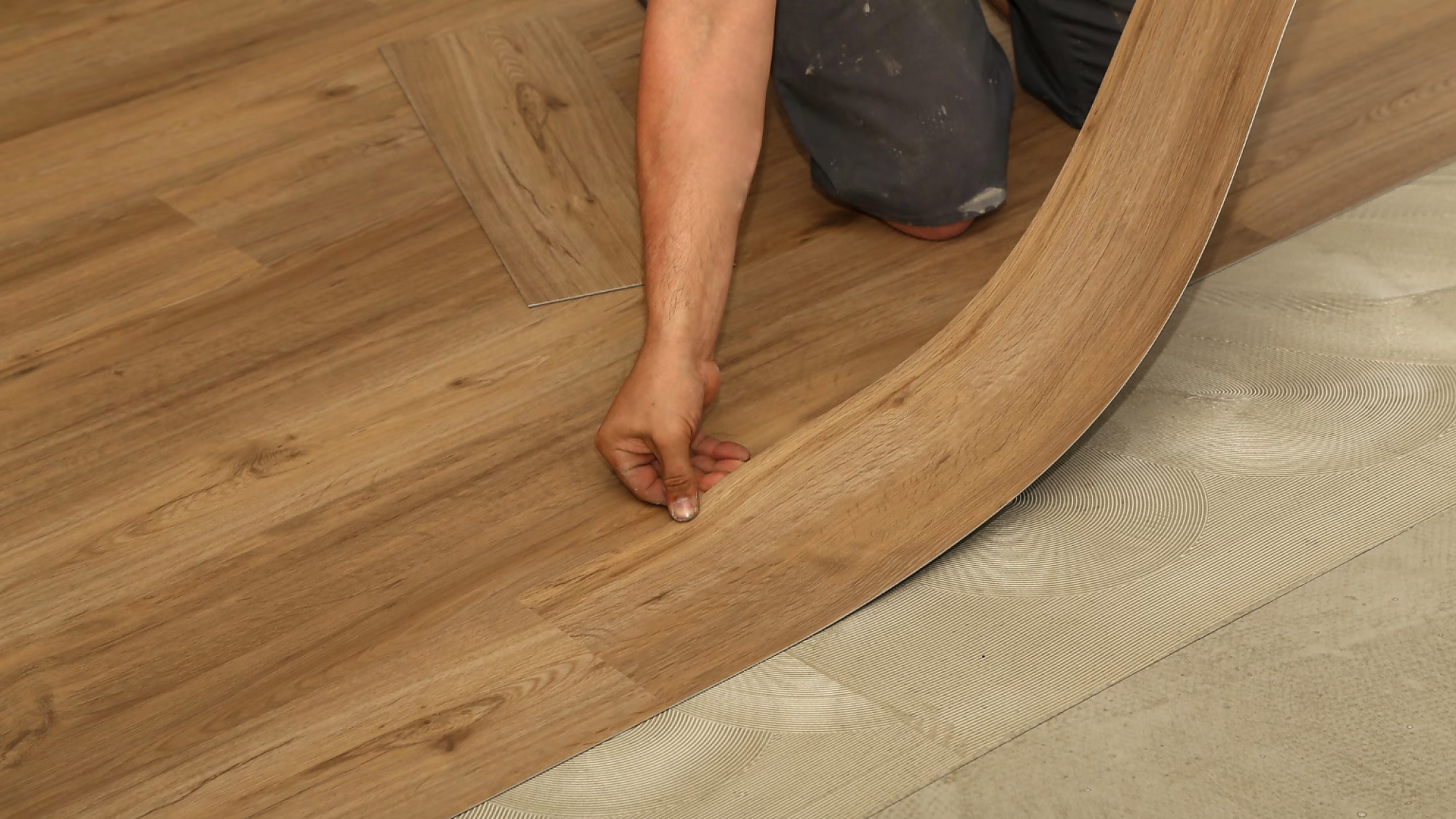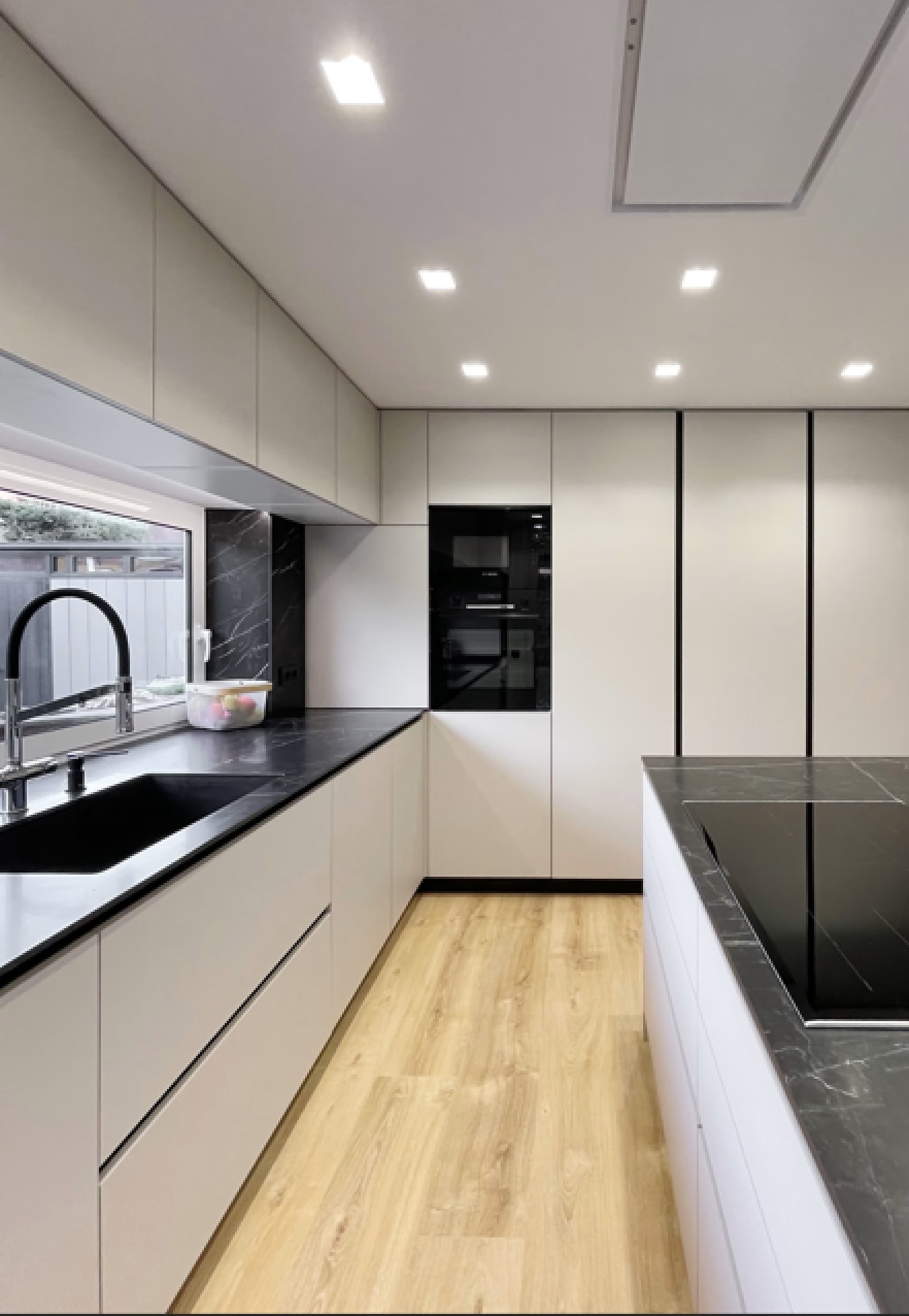The choice of types of kitchen flooring is one of the most important is one of the most important decisions when renovating this space and there are two options that have been debated: vinyl flooring or laminate flooring. Each one has advantages and differences with respect to the other and it is necessary to know them in order to make the right decision.
That is why, in this article we are going to go deeper into the characteristics of each of them to give you all the information.
what is vinyl flooring and what is laminate flooring?
Differences in materials and composition
The vinyl flooring is mainly composed of PVC (polyvinyl chloride), a synthetic material that is highly resistant to water and stains. Vinyl flooring can be rigid or “LVT” (Luxury Vinyl Tile), which comes in the form of tiles or planks.
The laminate flooringlaminate flooring, on the other hand, is made of layers of synthetic materials, usually a layer of high-density layer of high-density fibreboard (HDF), with a printed decorative layer on the top that mimics the on top that mimics the appearance of wood, stone or ceramic. Laminate flooring is not waterproof like vinyl and can be affected by moisture if not installed correctly.
Aesthetic appearance and available finishes
The vinyl flooring is distinguished by its wide variety of finishes, ranging from wood and stone imitations to more modern and customised options. Its versatility to adapt to different styles is, without a doubt, one of its main advantages.
The laminate flooring also offers a good choice of finishes, with realistic options that mimic wood and natural stone. However, its range of finishes can be somewhat more limited compared to vinyl flooring, especially in terms of textures and special finishes.
how do they perform in a kitchen?
Moisture resistance
The vinyl flooring excels in this aspect, as it is completely resistant to water and humidity. This makes it an ideal choice for the kitchen, where contact with liquids is frequent.
The laminate flooringis not water resistant to the same extent as laminate flooring. If water infiltrates between the joints or into the material over a long period, it can cause swelling and damage to the underlay.
Durability and maintenance
The vinyl flooring is highly durable durable, resistant to scratches and stains. It is also easy to maintain; simply sweep and damp mop. High quality vinyl flooring can last for decades if properly cared for.
The laminate flooring is less resistant than vinyl in terms of moisture damage and wear and tear. Although it is durable, it is more susceptible to scratches and scuffs, it is more susceptible to scratches and surface especially in kitchens with high traffic.
Installation and ease of replacement
The vinyl flooring is easy to installwith options such as the click system that requires no glue or special tools. Installation is quick and clean, making it a convenient option for renovations.
The laminate flooring laminate flooring is also relatively easy to install with the click system. However, because it is more sensitive to moisture damage, you should ensure that the installation is carried out correctly, with a protective layer underneath.

